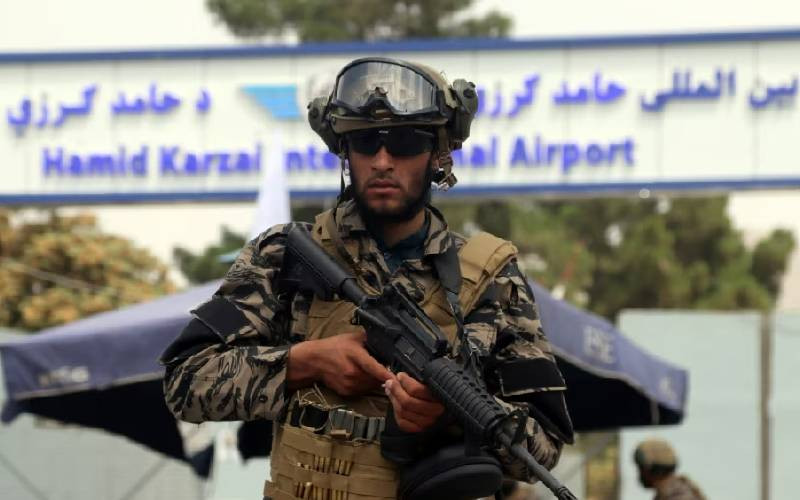
Pakistan's caretaker Prime Minister has stated that militant groups are carrying out frequent and more lethal attacks on his country's security forces because they are using the military equipment left behind by the United States in Afghanistan.
The assertions by Anwaar-ul-Haq Kakar came as militant ambushes and raids against Pakistani military and police forces become daily occurrences, particularly in districts near or along the Afghan border.
The violence has killed hundreds of security forces - including more than 200 military officers and soldiers - in the first eight months of 2023.
"The reason for the recent resurgence of terrorism being witnessed in Khyber Pakhtunkhwa and Baluchistan is, unfortunately, an outcome of the rushed military withdrawal by the U.S. and NATO allies," Kakar said in comments aired Friday on state television.
The prime minister referred to the two Pakistani provinces lining the country's 2,600-kilometer border with Afghanistan. He spoke to local media representatives in Islamabad on a day when a suicide bomber struck a military convoy in the Bannu district of Khyber Pakhtunkhwa, killing nine soldiers and wounding several others.
"The rushed withdrawal has had an impact not just on Pakistan but also on Central Asia, China, Iran, and the whole region," Kakar said.
'They can now target my soldier'
Kakar stated that Pakistani leaders had long unsuccessfully persuaded the U.S. to stage a "responsible withdrawal" to ensure their war equipment was accounted for and beyond the reach of terrorist groups.
Kakar claimed that anti-state groups such as the Tehrik-i-Taliban Pakistan, or TTP, and ethnic Baluch insurgents committing terrorist acts in his country have now armed themselves with thermal weapons, assault rifles, night vision goggles, and other equipment that U.S. troops left.